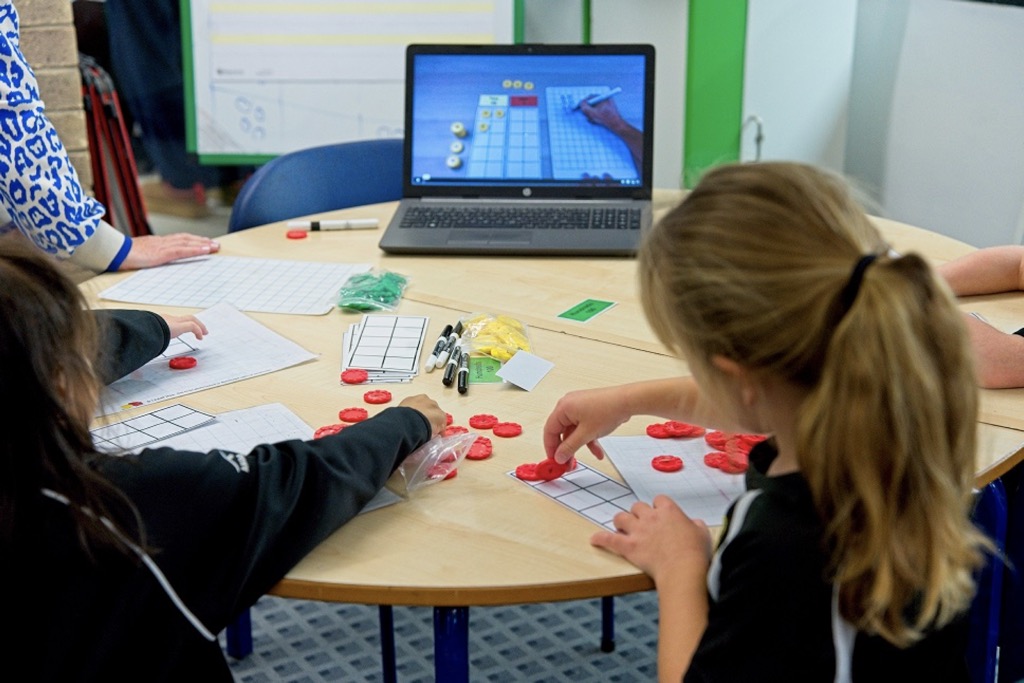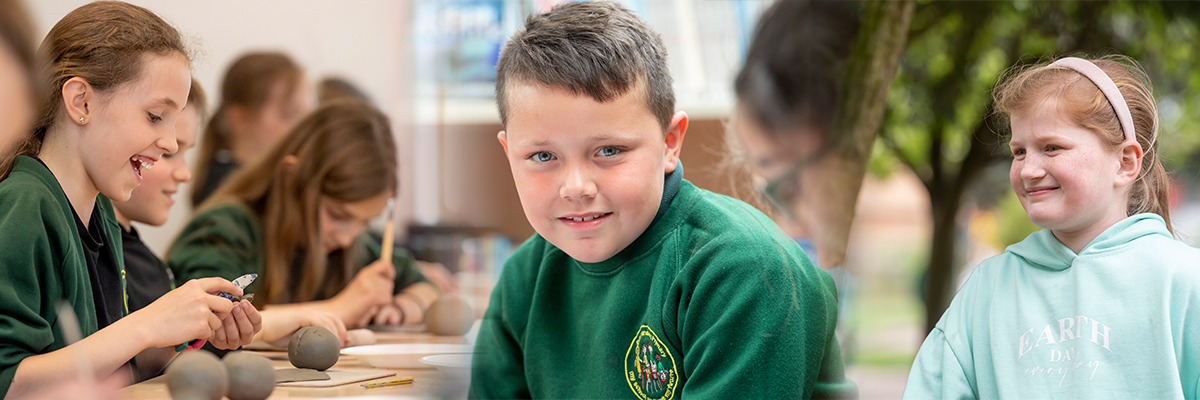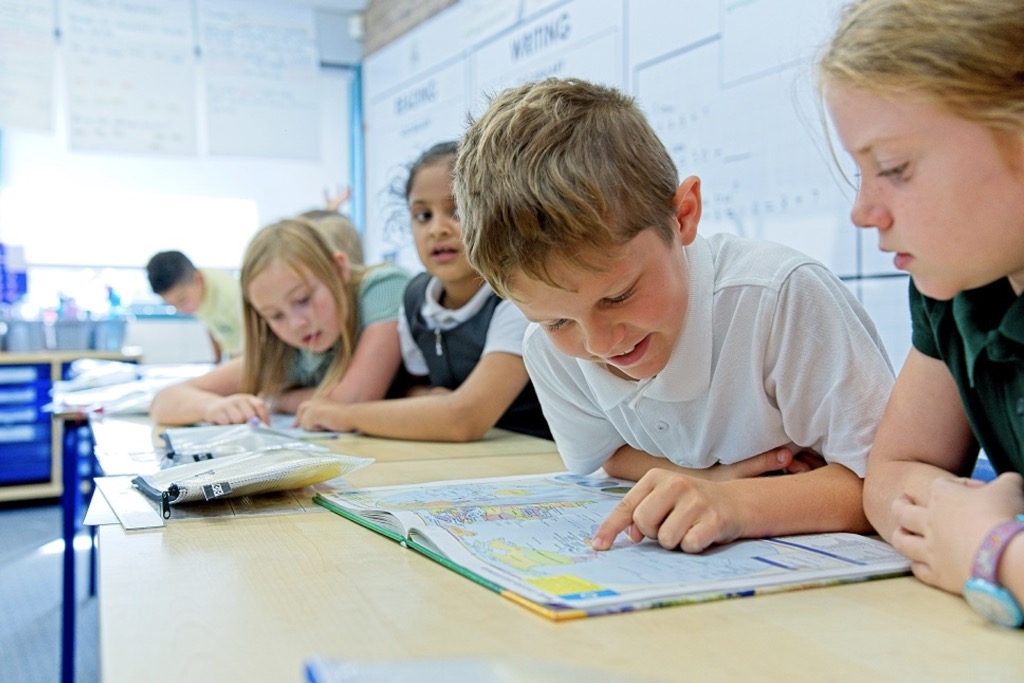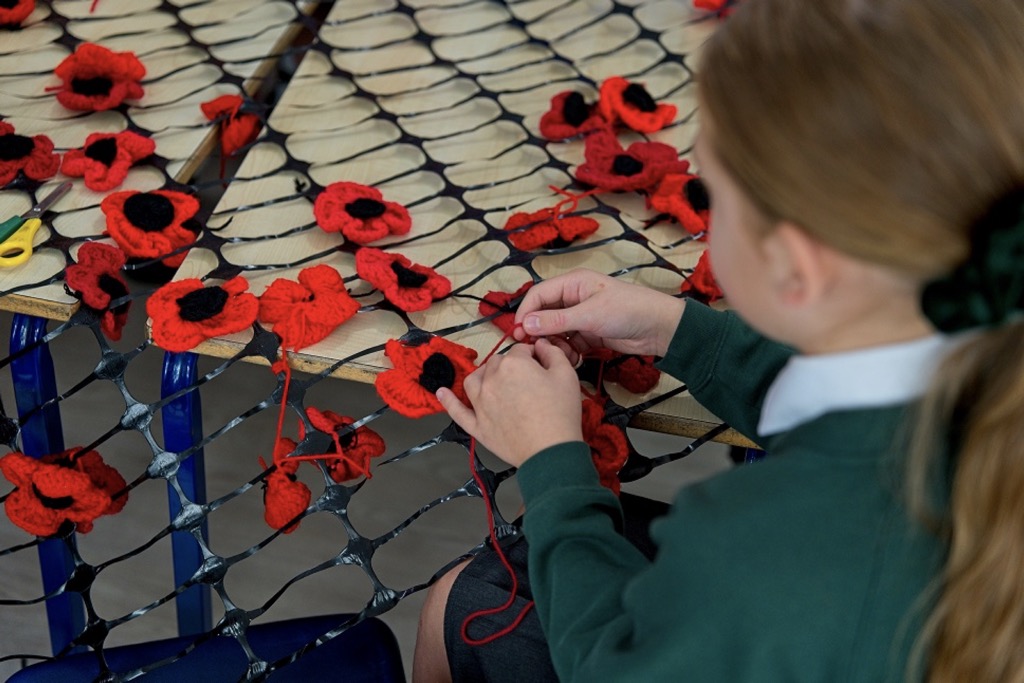Our Curriculum : Geography
Geography plays an important role at East Hunsbury Primary School and is fundamental to our mission of creating aspirational and knowledge–rich pupils.
It is our intention that our geography curriculum is aspirational, enabling and inclusive whilst encouraging all children to become curious about the world around them. It is our intention to provide the children with an ambitious curriculum which develops them as geographers and widens their understanding of themselves and the world around them. We intend for our children to:
- Secure an important geographical perspective, through their growing knowledge of places, people, resources and physical and human processes.
- Understand the effect that geography has on our everyday lives and that, without it, other events and subjects have much less meaning.
- Develop an understanding and appreciation of their local area and the wider world, enabling them to become important global citizens.
- Obtain a sound locational knowledge of the world and an appreciation of the geographical features and events that make each place unique.
- Understand similarities and differences across the world and be able to use geographical vocabulary in order to discuss these.
- Be confident when using a variety of geographical sources, including a range of maps and atlases.
For further information, please refer to the NPAT Geography Narrative Document.
To ensure high standards of teaching and learning in geography, our curriculum has been carefully sequenced to ensure knowledge builds upon knowledge and children can develop a secure understanding of key geographical concepts. It is a knowledge-rich curriculum in which substantive knowledge and disciplinary knowledge is woven through. All knowledge content is specified in detail and is taught to be remembered, not just encountered.
Geographical knowledge is taught through six high-dividend concepts which are weaved through the curriculum and form the ‘big ideas’ through which all geography is taught. These are: change, culture and diversity, scale, sense of place, space and sustainability and the environment. Our curriculum draws out the links between these concepts and between geographical processes and ideas.
Our curriculum is implemented in such a way that children learn four forms of geographical knowledge:
- Locational knowledge – knowing where is where.
- Place knowledge and understanding – locate oneself within the larger global space and in relation to other places.
- Knowledge of environmental, physical and human geography processes – understand how human and natural phenomena occur and the impact of these.
- Geographical skills – the knowledge necessary to carry out fieldwork, including spatial representations such as maps, globes and atlases.
Our geography curriculum enables our pupils to think, act and work like a geographer.
By the end of Key Stage 2, pupils will demonstrate sound geographical knowledge and understanding and develop a curiosity and appreciation for their locality, the wider world and its people.
The impact of our geography curriculum is assessed through a multi-faceted approach including:
- Targeted questions
- Pupil conversations and feedback
- Weekly retrieval practice and quizzes
- Practical application of disciplinary knowledge
- Summative end of unit writing tasks
Leaders also monitor the quality and impact of the geography curriculum at different stages, through lessons visits, book-looks, pupil voice and end of unit assessment grids and evaluations. Pupil attainment in geography is recorded on Insight annually at the end of the summer term.
Geography is taught in Key Stage 1 and Key Stage 2 in alternate half terms for one hour per week.
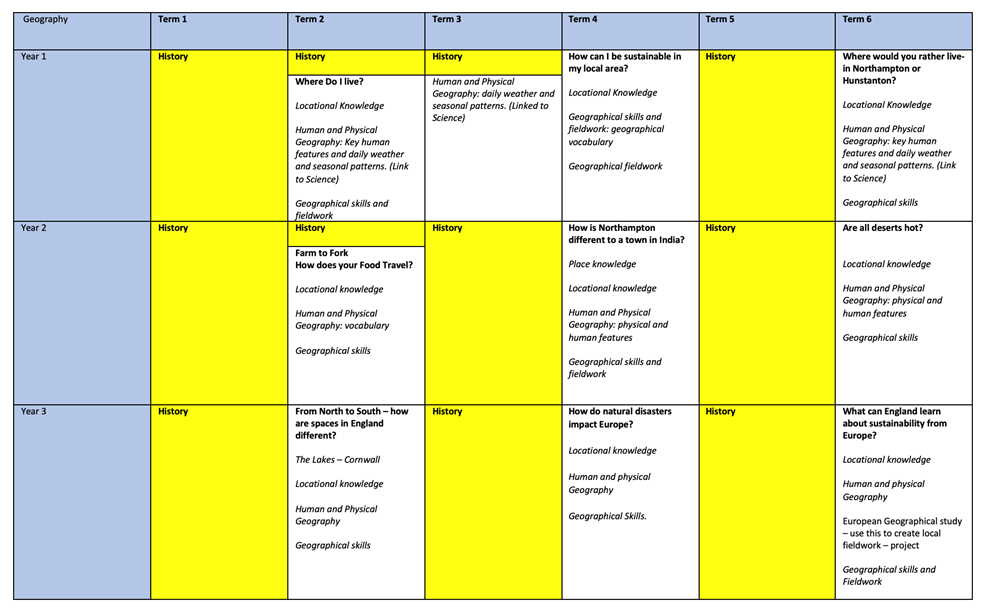
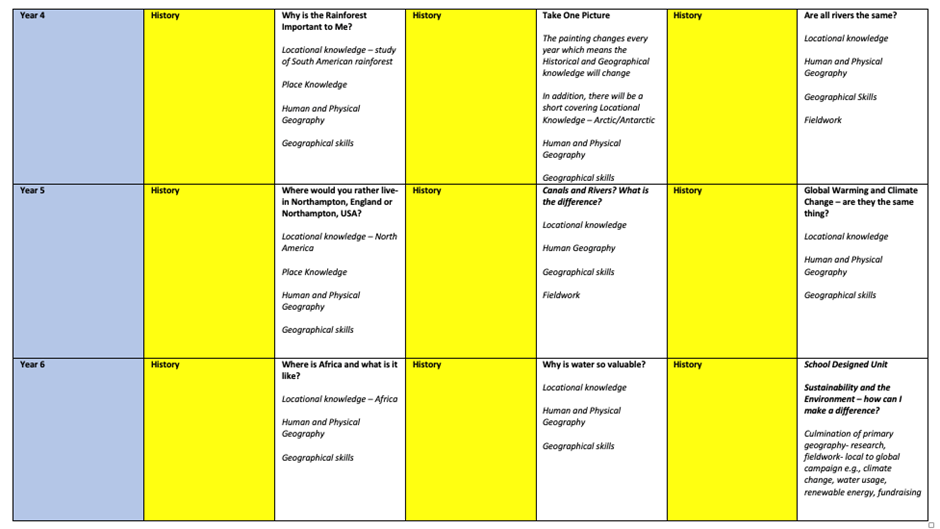
Our geography curriculum has been sequenced in a such as a way that pupils will develop a secure and coherent knowledge of their locality, the United Kingdom, weather patterns and locations across the world. Units of work are structured around an overarching geographical enquiry which is broken down to ensure an incremental progression in knowledge across a series of lessons. Fieldwork is incorporated alongside this to develop the skills and understanding of how a geographer thinks and acts.
Geographical knowledge and concepts are built upon with carefully mapped-out horizontal, vertical and diagonal links. These enable children to develop their geographical schema and understand how this knowledge fits in with their understanding of the wider curriculum and the world in which they live. Some examples of these links are detailed below:
- Horizontal links – These are links made across the units within a year group. For example, in Year 6, children learn about the natural resources of Africa which are built upon in the next unit through a study of distribution and UK trade links.
- Vertical links – These are links where knowledge and understanding is built upon from a unit in a previous year group. For example, in Year 3, the Autumn unit, ‘From North to South – how are spaces different?’ builds upon the understanding of space from the Year 2 unit, ‘How is Northampton different to Africa?’
- Diagonal links – These are cross-curricular links made with other wider curriculum subjects. For example, links between ‘Ancient Egypt’ in history with ‘From Nene to Nile’ in geography or the reading of graphs in geography with an understanding of statistics in maths.
Sustainability and the environment are at the heart of our geography curriculum with explicit links in Years 1, 3, 5 and 6.
Children start their geographical learning in our Foundation Stage through Knowledge and Understanding of the World. They will:
- Describe their immediate environment using knowledge from observations, discussions, stories, non-fiction texts and maps.
- Explain some similarities and differences between life in this country and in other countries, drawing on knowledge from stories and non-fiction texts and maps where appropriate.
- Understand some important processes and changes in the natural world around them, including the seasons.
The foundational geographical knowledge taught within the Early Years is built upon throughout Key Stage 1 and then Key Stage 2.
Within Key Stage 1, children begin to develop their knowledge of the local area, the United Kingdom and of the world’s oceans and continents. They make simple geographical comparisons between places within the UK and develop their understanding of human and physical features and the differences between them. The idea of sustainability is also introduced within Key Stage 1.
During Key Stage 2, children further broaden their locational knowledge to include places across the continents and develop their understanding of human and physical features through exploring these in more detail and considering the differences between them, such as rivers and canals. Children also explore the natural processes of the Earth. They consider the impact of these on the planet but also the impact of human interaction with the environment and how these can affect the sustainability of the planet on which they live.
Enrichment in geography goes beyond the curriculum. We provide children with the opportunity to participate in various enrichment activities which help to make their learning memorable but also supports them to embed their geographical understanding and make relevant links to their own lives. Some examples of enrichment in geography are:
- In Year 4, when pupils study “Why is the rainforest important to me?”, they are involved in a whole-day immersive experience during which they receive a visit from a real-life Amazon Rainforest explorer.
- In Year 1, the unit “Where would you rather live – in Hunstanton or Northampton?” includes a visit to the seaside town of Hunstanton where pupils can experience the similarities and differences between the two locations first-hand.
- Year 6 pupils plan and undertake local fieldwork as part of a school-planned unit entitled “What is air pollution and how does it affect our local environment?” This enables them to see the impact of local traffic on their environment.
At East Hunsbury Primary School, the British Values of Democracy, The Rule of Law, Individual Liberty and Mutual Respect and Tolerance of those with different faiths and beliefs are embedded throughout our geography curriculum.
Democracy:
- Children explore issues such as democracy in different geographical contexts and relate them to the modern day. They learn the impact decisions made by those in power can have on specific places and environments (e.g. the rainforests of the world). This enables them to understand how, over time, changes have happened and how to evaluate the impact of change.
- In upper Key Stage 2, children are encouraged to evaluate all arguments in a debate and to examine human rights issues, such as fair trade, as well as identify the impact of discrimination and address stereotypes. For example, the unit, “What is Africa like?” addresses the stereotypes often formed around this continent and its people.
Rule of Law:
- Children explore how governments and the rules of law can affect geographical issues such as climate change and the importance of having laws in place to protect the world in which they live.
- Children can make choices individually or as a group and follow the rules of the school to work together successfully.
Individual Liberty:
- Children have the freedom of expression whilst respecting others during contributions to class discussions regarding geographical issues such as pollution and globalisation.
- Children think about how their actions can impact their community and locality and how they can make a difference to protecting their own world.
Mutual Respect and Tolerance:
- Children are encouraged to proud of their culture and heritage. They compare similarities and differences between themselves and those of others around the world and develop their understanding, respect and tolerance of different cultures.
The National Curriculum recognises how important it is for children to understand the world in which they live. Here at East Hunsbury Primary School, we want children to live alongside and show respect for a diverse range of people. We provide children with the knowledge and skills to do this through the teaching of protected characteristics within our geography curriculum. Some examples where this is demonstrated are:
- Age: The study of Global Warming in Year 5, where children study the Greta Thunberg speech made in 2019 whilst she was still a schoolgirl.
- Race: The study of the African Continent in Year 6, where children consider the racial stereotypes and tensions within this geographical area and their effects.
It is extremely important for us that our children grow up to be respectful, ambitious and empathetic citizens who respect the world in which they live.
We ensure that every child has what they need to succeed within geography. Our geography curriculum is ‘inclusive by design’. It is our ambition for all our pupils to access the full geography curriculum and quality first teaching enables this. Support for pupils with SEND or disadvantaged pupils is given by careful individual and/or group support to secure the knowledge and skills associated with our geography curriculum.
Our geography curriculum caters for the different groups within our school and we ensure teaching and learning supports children’s individualised needs. We achieve this by creating opportunities for children by:
- Using visual supports
- Scribing work
- Open-ended investigations
- Outside learning
- Hands-on practical application and tasks
- Sensory experiences
- Visits and visitors
- Use of technology to assist and explore
In addition to our geography curriculum, we provide rich experiences and opportunities which link to our education teams, ‘Our World’ and ‘Careers and Aspirations’. These opportunities aim to support children to embed and contextualise their learning and gain a deeper understanding of how geography fits into their world. For example, as part of ‘Our World’, the children participate in the annual celebration Earth Day. Throughout this event, the children develop their understanding of the importance of our planet, as well as the impact we are having on it.

